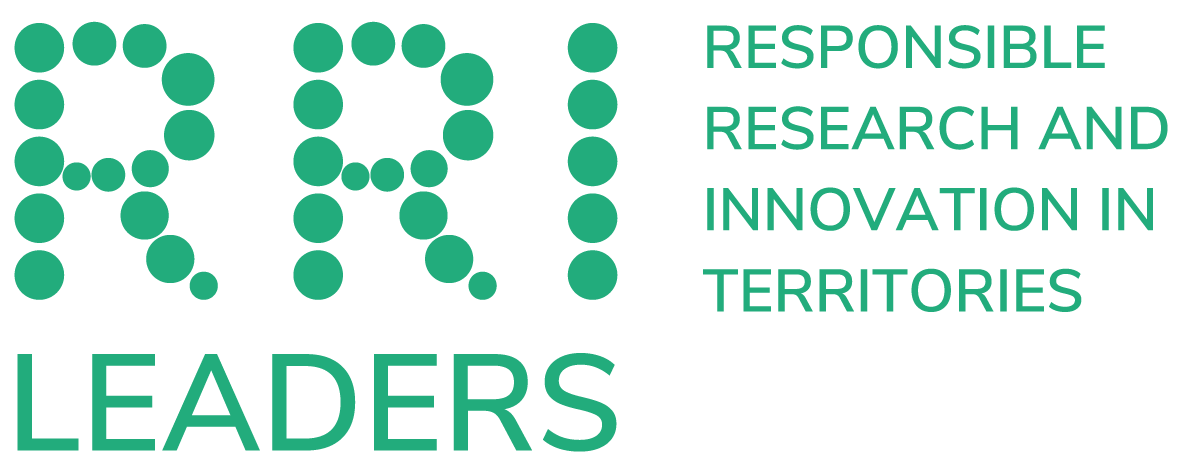The Project
RRI-LEADERS explores the application and sustainability of the RRI paradigm within territorial innovation systems, with a special emphasis on instrumentalising leadership in the design of policies that are anticipatory, inclusive, reflexive and responsive. “Territory” is understood as a confluence between geographical location, socio-economic and cultural bonds, and administrative authority.
The project involves four different territories representing a diverse range of opportunities and implications for RRI, which enable to carry out a thorough assessment of the RRI relevance to territorial governance and the involved territories to act as demonstrators for the potential of RRI on sub-national level. The accumulated knowledge will be used to chart a detailed outlook for the future potential of RRI as a guiding framework in territorial governance of R&I, and will aim to provide an evolutionary perspective on RRI for the upcoming Horizon Europe programme.


RRI-Leaders will explore the application and sustainability of the RRI paradigm within territorial innovation systems, with a special emphasis on instrumentalising leadership in the design of policies that are anticipatory, inclusive, reflexive and responsive. “Territory” is understood as a confluence between geographical location, socio-economic and cultural bonds, and administrative authority.
The project will involve four different territories representing a diverse range of opportunities and implications for RRI, which will enable to carry out a thorough assessment of the RRI relevance to territorial governance and the involved territories to act as demonstrators for the potential of RRI on sub-national level. The accumulated knowledge will be used to chart a detailed outlook for the future potential of RRI as a guiding framework in territorial governance of R&I, and will aim to provide an evolutionary perspective on RRI for the upcoming Horizon Europe programme.
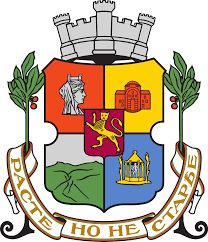
City of Sofia
Bulgaria
City of Sofia
Sofia, with the population of approximately 1.3 million, is the political, financial, educational, cultural, business and commercial centre of Bulgaria. It accounts for 40% of the national GDP, and attracts over half of the foreign investments in Bulgaria – EUR 12.4 billion or EUR 9,800 per resident in 2018.
Sofia has a very vibrant and innovative start-up and entrepreneurial ecosystem. As a result, the ICT sector became one of the priority sectors, accounting for 19% of the city economy. Other high-tech sectors in Sofia include Fintech and artificial intelligence, creative industries, the film industry, the gaming sector, the automotive, robotics and aerospace sectors. Sofia has more than 35 tech, art and social co-working spaces and hubs. In addition, there are 10 operating business zones in the city as well as a science and technology park with 11 high-tech laboratories, focusing on IT, life sciences and green energy. There are 23 universities, 63 research centres and more than 30 independent IT schools in Sofia.
The Municipality authorities are committed to transforming Sofia into an innovative city that employs digital technologies, and modern policy and financial instruments to improve the efficiency of urban operations and public services, the socio-economic and cultural environment, and citizen well-being and quality of life. These objectives are defined in the key strategic documents of the city, such as the Innovation Strategy for Smart Specialisation of Sofia, the Strategy for Digital Transformation of Sofia, Sofia Youth Strategy 2017-2027, and the Vision for Sofia 2050.
The four policy areas, chosen by the Sofia Municipality for the RRI-LEADERS project are fully in line with these strategic documents:
1) support for innovations,
2) digital transition and new skills,
3) youth employment and entrepreneurship, and
4) sustainable urban development.
Through the RRI-LEADERS project, Sofia Municipality expects to get support from the European and local partners for the identification, development and implementation of measures and procedures. The aim is to transform research and innovation in such a way that responsibility becomes an institutionalised ambition and leadership priority for the city authorities, encouraging societal change-driven policy making and sustainable governance in an anticipatory and inclusive way.
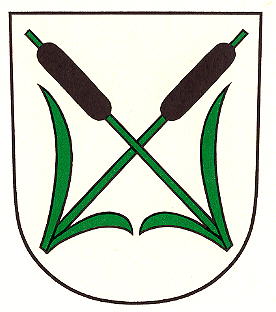
Municipality of Thalwil
Switzerland
Municipality of Thalwil
Thalwil is a municipality in Switzerland, located in close proximity to the City of Zurich. Having developed from a farming village through a textile industry hotspot to a residence with modern work opportunities, Thalwil is currently a densely populated municipality with a relatively high living standard.
Out of 6,600 employees, about 84% are employed in the tertiary sector, which covers activities such as administration, real estate, commerce and business. The same holds true for about 90% of small and medium size businesses, as Thalwil is considered an attractive tax location.
Like the rest of Switzerland, Thalwil emphasises the importance of direct democracy, in which the inhabitants of autonomous municipalities decide on policy issues. The municipality is led by the executive authority – the municipal council – in which the mayor also sits.
Over the last two decades, Thalwil has been committed to sustainable development – a major policy theme in the municipality. Through the RRI-LEADERS project, the Municipality of Thalwil strives to transform its energy system. Suggestions to achieve this goal include:
-
- Diversity and inclusion of different actors in policy-making, business and research
- Open access to data
- Greater social engagement that will attract broader and more diverse participation from the local population.
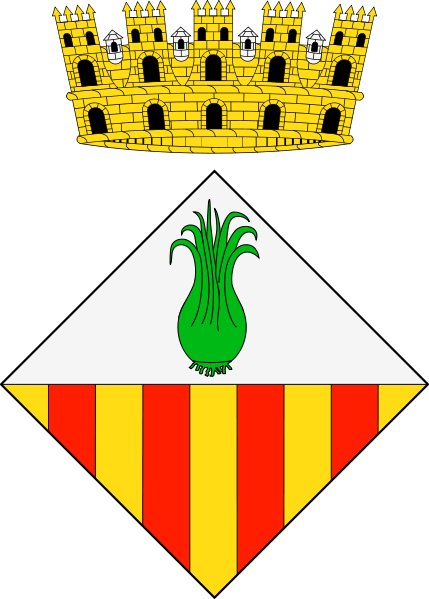
City of Sabadell
Catalonia (Spain)
City of Sabadell (Catalonia)
Sabadell is the fifth most populous city in Catalonia, with a total population of 216,500. Due to its strategic geographic position in proximity to Barcelona, the city possesses significant opportunities for the development of a competitive industrial and research structure on a Mediterranean and European level.
The city of Sabadell comes third in Spain’s information and communication industry, and second in sports activity areas. The tertiary sector is highly developed, with commerce generating a high turnover rate among businesses. The secondary sector – that of manufacturing – is also an important aspect of the city’s economy, whose turnover is owed to a great extent to the construction sector. Sabadell moreover depends largely on the textile and paper industry, which has been evolving in the city since the Industrial Revolution.
Sabadell’s current goal is to promote projects encouraging innovation, new technologies, knowledge, and activities associated with the industry. It is committed to the revitalisation of the local economy, based on a strategy focused on five main axes:
-
- Healthcare
- Logistics
- Research and technology
- Aeronautics
- Design and fabrics
Over the last years, the city of Sabadell has been engaged in the deployment of Smart Specialisation Strategies in Circular Economy, Active Ageing, and Intelligent Design in Industry, meant to build competitive economic advantage. Their implementation is therefore also the focus of their participation in the RRI-LEADERS project. Sabadell’s policy focus seeks to promote the territorial innovation ecosystem and to generate policy change at local level.
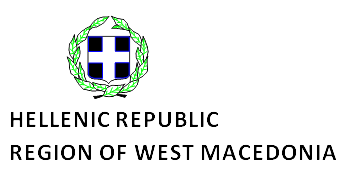
Western Macedonia
Greece
Western Macedonia
Western Macedonia is located in Northwestern Greece, bordering Albania and Northern Macedonia. The geographic position of this landlocked, sparsely populated region allows it to serve as a gateway for Greece and the EU to the Western Balkans. In recent years, the local economy has deteriorated, marked by a loss of competitiveness, decreased GDP, and high unemployment rates, especially among the youth. Nonetheless, Western Macedonia plays an important role in the national economy as the leading area of electricity generation.
The Western Macedonia Region is currently undergoing de-lignitisation – a process which is due to greatly impact the local employment rate and the operation of hundreds of companies. For this reason, it is committed to smooth and successful energy transition, focusing on the following three policy areas:
-
-
- A stakeholder engagement strategy within the course of the post-coal transition roadmap.
- Strengthening policy-making systems involving different modes of territorial governance for the post-coal transition strategy.
- Developing a methodology to achieve a smooth and innovative transition towards alternative development
-
According to representatives from the research sector, including the University of Western Macedonia, positive contributions to the concept of responsibility in science and innovation in the region are aided by new opportunities offered by the energy transition, the region’s small size which allows direct communication, and the involvement of civil society in research. Policymakers and civil society representatives meanwhile emphasise the importance of accessibility and engagement, stressing that energy transition should be directly related to society.
Through the RRI-LEADERS project, Western Macedonia aims to develop a sustainable energy sector and, through it, to encourage innovation, entrepreneurship, and an improved bureaucracy. Achieving sustainable de-lignitisation with the help of European and local partners will ultimately empower actors in business, research and innovation, and policymaking.
